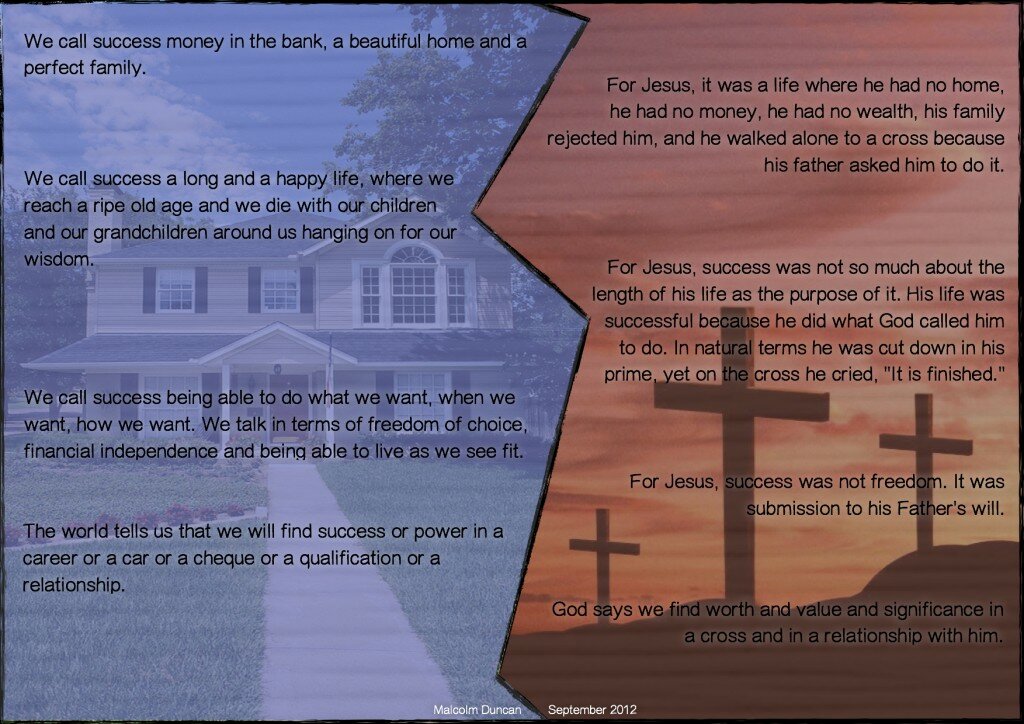This is a question I’ve heard a number of times in my life. Two Christians are talking, and want to understand each other’s church or theological traditions. So they ask a very natural question: ‘What is your church like?’

I think there is a problem with this question though.
As an aside, it can sometimes be an unfair question, because by learning about someone’s church you don’t always learn about them. A lot of people are part of churches that don’t reflect their own theological convictions for a whole variety of good reasons – commitment to their local church and community, a calling to be an instrument for chance, respect and love for a family member… But, that’s an aside.
The answers are wrong
My real problem isn’t with the question itself – ‘What is your church like?’ – but with the answers we can expect to get when we hear it.
Go on. Try it. If you’re a Christian who’s part of a church, try to describe in a sentence or two. Please. Now. Go on, have a go.
Did you do it? Or just keep reading? That’s very naughty. I’ll give you another chance. Try now.
If you did (I know some still won’t!), what sorts of things did you describe. The answers I hear to that question tend to rely heavily wither on (1) denominational – or other – labels, which I don’t think are helpful for the way we end up viewing ourselves, or on (2) structures and activities. I could describe my church in these two ways:
- Gold Hill is a large, evangelical Baptist church which is – broadly speaking – conservative theologically and with a charismatic expression of worship.
- Gold Hill has three main meetings on a Sunday, one midweek on a Thursday, an array of small groups and a whole host of different ministries.
But do those answers really tell you about my church? The first one is a description that’s more likely to divide than unite (“Hmmm, not sure I like all of those labels myself…”), and the second describes the programmes but not the lifeblood or heartbeat of the church. I suppose a third would be to describe the building.
Tell me who you ARE!
We can get very hung up on structures, labels, formats, activities, building and all sorts of other peripheral things. The thing is, these either describe what we do, or what we are NOT like. But I want to know who you are! And the truth is, structures aren’t what matter the most. In a recent blog post on his brilliant site, Jeremy Myers wrote this:
I don’t think God cares too much which church model we use, house church, mega church, liturgical church, or free-for-all charismatic church.
And I think he is right. There are deeper concerns than what we do at services and what wider bodies we belong to.
Better descriptions of churches are about what the church is committed to, what our priorities are, what our goals, hope and dreams are. What is our vision. Service styles come and go. Leaders come and go. But what is the vision, heart and pulse of a church?
Finding the words
Gold Hill has a vision statement. Gold Hill is seeking to be an authentic Christ-like community, encountering God, making disciples and transforming the world. I can tell you that without telling you about what sorts of songs we sing, whether we sing songs at all, or a whole host of other things we often deem more important than they are.
We also have values. In all we say and do, we seek to be generous, Spirit-led, missional, biblical, courageous, welcoming, prayerful and loving. Again, no mention of structures.
I tell you that not to glorify Gold Hill. I’m sure we often define ourselves too much by our affiliations, size or structures, but I’ve found having another way to describe us very useful indeed. It may be that finding words yourself or for your church would be useful for you, too.
Now, when people ask what my church is like, I try very hard to start with WHO we are, not WHAT we do.
So, let’s go again: what is your church like?


 Nature is there to be enjoyed
Nature is there to be enjoyed












